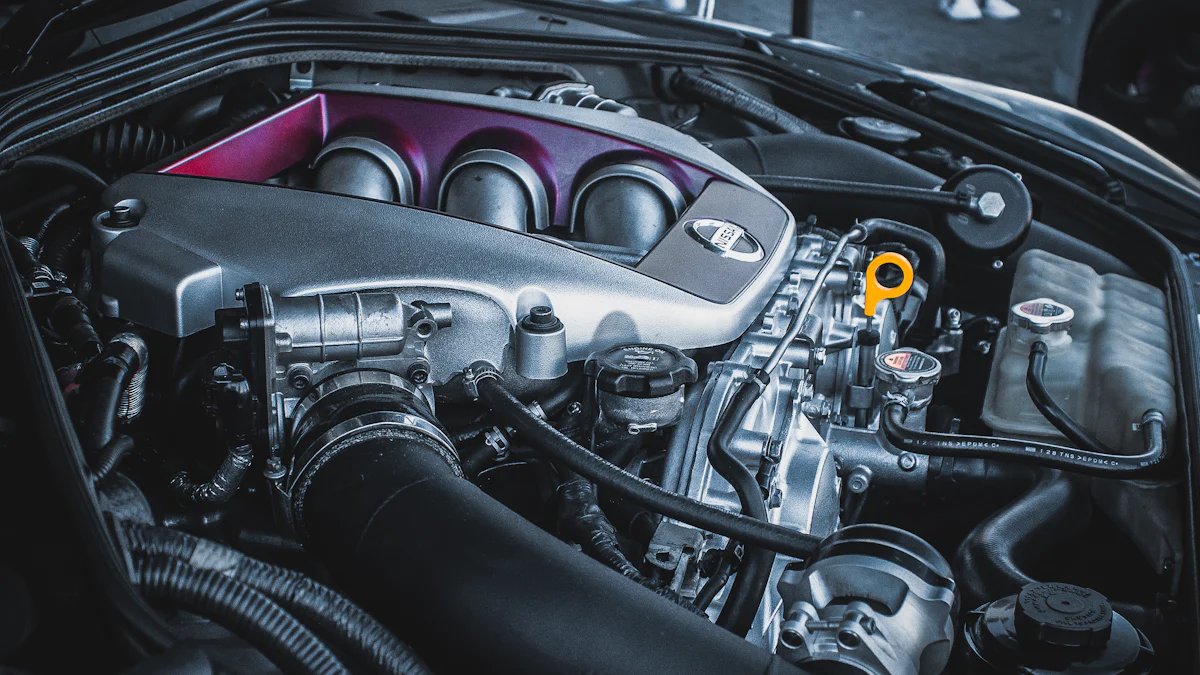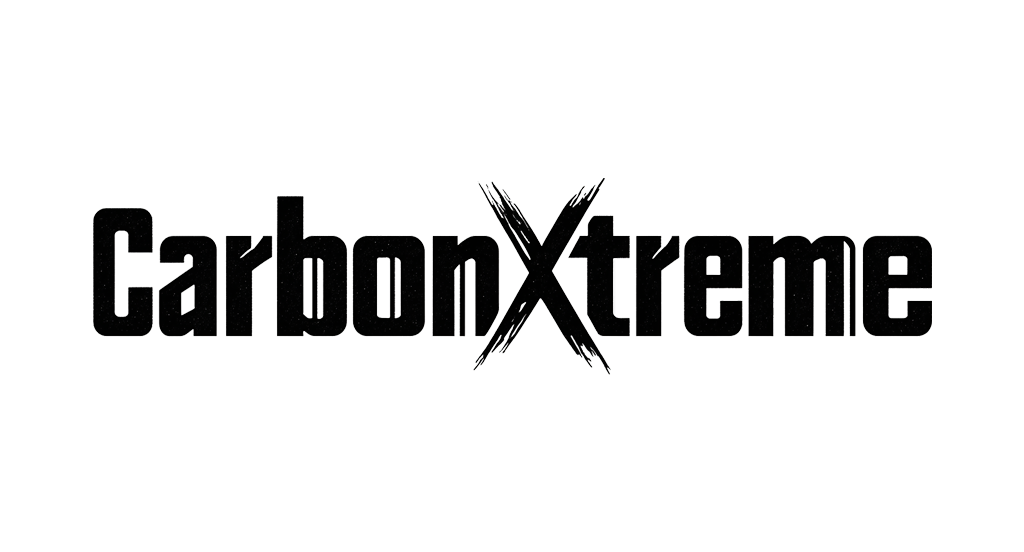Comparación de recambios originales VW y opciones del mercado de recambios

When it comes to maintaining your Volkswagen, the choice between genuine Volkswagen parts and VW aftermarket parts can significantly impact your vehicle’s performance and safety. Genuine parts are crafted by Volkswagen to meet exact specifications, ensuring a precise fit and long-term reliability. On the other hand, aftermarket parts, produced by third-party manufacturers, often appeal due to their lower cost but may lack the same level of quality and compatibility. Making an informed decision is essential to protect your investment, enhance safety, and achieve optimal performance.
Principales conclusiones
Genuine VW parts ensure a perfect fit and high-quality performance, making them ideal for critical repairs and maintaining vehicle integrity.
Aftermarket parts are generally more affordable and widely available, making them a practical choice for budget-conscious drivers or non-critical repairs.
Choosing genuine parts often comes with manufacturer-backed warranties, providing peace of mind and financial protection against premature failures.
Evaluate the quality and reputation of aftermarket manufacturers, as their products can vary significantly in durability and compatibility.
Consider your vehicle’s age and repair urgency when deciding; genuine parts are best for newer models, while aftermarket options may suit older vehicles.
Using genuine VW parts can enhance your car’s resale value, as buyers prefer vehicles with original components.
Always weigh the pros and cons of each option to make an informed decision that aligns with your priorities and budget.
Understanding Genuine VW Parts and Aftermarket Parts

What Are Genuine VW Parts?
Genuine VW parts, also known as OEM parts (Original Equipment Manufacturer), are components designed and manufactured by Volkswagen or its trusted suppliers. These parts meet Volkswagen’s exact specifications, ensuring they fit perfectly and function seamlessly with your vehicle. They undergo rigorous testing, including performance and crash tests, to guarantee safety, durability, and reliability.
When you choose genuine VW parts, you benefit from their high-quality materials and engineering. These parts are built to last and maintain the integrity of your vehicle. Additionally, they often come with warranties, providing peace of mind and protecting your investment. Whether you’re replacing a worn-out component or upgrading your car, genuine VW parts ensure optimal performance and compatibility.
What Are Aftermarket Parts?
Aftermarket parts are produced by third-party manufacturers and are not affiliated with Volkswagen. These parts are designed to fit a wide range of vehicles, which means they may not always match the exact specifications of your VW model. While they are often more affordable than OEM parts, their quality and compatibility can vary significantly.
Some aftermarket parts offer decent quality and can even rival OEM components in certain cases. However, others may lack the durability and precision engineering of genuine VW parts. For budget-conscious drivers, aftermarket parts can be an attractive option, especially when the vehicle is no longer under warranty. Despite their lower cost, it’s essential to carefully evaluate the quality and reputation of the manufacturer before making a purchase.
Key Differences Between Genuine VW Parts and Aftermarket Parts
Understanding the differences between genuine VW parts and aftermarket parts can help you make an informed decision:
Quality and Fit: Genuine VW parts are specifically engineered for your vehicle, ensuring a perfect fit and reliable performance. Aftermarket parts, on the other hand, may not always meet the same standards, leading to potential issues with compatibility and durability.
Garantía: Genuine VW parts typically come with a manufacturer-backed warranty, offering added security and confidence. Most aftermarket parts lack such guarantees, leaving you to bear the risk if the part fails prematurely.
Cost: Aftermarket parts are generally less expensive than OEM parts, making them appealing for those on a tight budget. However, the lower upfront cost may come at the expense of long-term reliability and performance.
Disponibilidad: Aftermarket parts are widely available and often easier to source than genuine VW parts. This accessibility can be convenient, especially for older vehicles or urgent repairs.
Longevity: Genuine VW parts are designed to last longer due to their high-quality materials and precise engineering. Many aftermarket parts may not offer the same level of durability, potentially leading to more frequent replacements.
“Choosing between genuine VW parts and aftermarket parts depends on your priorities, such as budget, vehicle age, and long-term goals. While genuine parts ensure quality and reliability, aftermarket options can provide cost-effective solutions for specific needs.”
By understanding these distinctions, you can weigh the pros and cons of each option and select the best parts for your Volkswagen.
Comparing Genuine VW Parts and VW Aftermarket Parts
Quality and Compatibility
When it comes to quality and compatibility, genuine Volkswagen parts stand out. These parts are specifically designed for your vehicle, ensuring a precise fit and seamless integration. They undergo rigorous testing to meet Volkswagen’s high standards, which guarantees reliable performance and durability. By choosing OEM parts, you can maintain the integrity of your vehicle and avoid potential issues caused by poorly fitting components.
On the other hand, aftermarket parts vary widely in quality. Some manufacturers produce reliable components that work well with your vehicle, but others may cut corners to reduce costs. This inconsistency can lead to compatibility problems, such as improper fit or reduced performance. While some aftermarket parts may perform adequately, they often lack the precision engineering found in OEM parts. If you prioritize long-term reliability and optimal performance, genuine Volkswagen parts are the better choice.
Warranty Considerations
Warranty coverage is another critical factor to consider. Genuine OEM parts typically come with a manufacturer-backed warranty, offering peace of mind and financial protection. If a part fails within the warranty period, you can replace it without additional costs. This assurance reflects the confidence Volkswagen has in the quality of its components.
In contrast, most aftermarket parts do not include warranties or offer limited coverage. If an aftermarket part fails prematurely, you may need to pay for a replacement or additional repairs. This lack of protection can increase the overall cost of maintenance in the long run. For those who value security and reliability, the warranty benefits of OEM parts make them a more appealing option.
Relación coste-eficacia
Cost often plays a significant role in deciding between genuine and aftermarket parts. VW aftermarket parts are generally less expensive upfront, making them attractive for budget-conscious drivers. This affordability can be beneficial for older vehicles or non-critical repairs where premium quality may not be necessary.
However, the lower initial cost of aftermarket parts can come with hidden expenses. Poor-quality components may wear out faster, leading to more frequent replacements and higher long-term costs. Genuine OEM parts, while more expensive initially, often last longer and require fewer repairs over time. This durability can save you money in the long run, especially for essential components that impact your vehicle’s performance and safety.
“Choosing between OEM and aftermarket parts depends on your priorities. While aftermarket parts may save you money upfront, OEM parts provide better quality, compatibility, and long-term value.”
By weighing these factors, you can make an informed decision that aligns with your needs and budget. Whether you prioritize cost savings or long-term reliability, understanding the differences between these options will help you choose the best parts for your vehicle.
Availability and Accessibility
When it comes to availability and accessibility, the choice between genuine Volkswagen parts and aftermarket options can make a big difference. Genuine VW parts are often sourced directly from authorized dealerships or certified service centers. These parts are specifically manufactured for your vehicle, ensuring they meet Volkswagen’s high standards. However, their availability may sometimes be limited, especially for older or less common models. You might need to wait for an order to arrive, which could delay repairs.
Aftermarket parts, on the other hand, are widely available through various retailers, both online and in physical stores. Their broad accessibility makes them a convenient option, particularly if you need a part quickly. Many aftermarket manufacturers produce components for a wide range of vehicles, so finding a compatible part is often easier. This convenience can be especially helpful for older vehicles where OEM parts may no longer be in production.
“While aftermarket parts offer greater accessibility, genuine VW parts ensure compatibility and quality, even if they take longer to source.”
If you prioritize speed and convenience, aftermarket parts might seem like the better choice. However, you should carefully evaluate the quality and fit of these parts before making a decision. For critical repairs or components that affect safety, waiting for genuine VW parts could be worth the extra time.
Pros and Cons of Genuine VW Parts
Advantages of Genuine VW Parts
Genuine VW parts, also known as OEM parts, offer several benefits that make them a reliable choice for maintaining your vehicle. These parts are specifically designed and manufactured by Volkswagen or their trusted suppliers, ensuring they meet the exact specifications of your car. This precision guarantees a perfect fit and seamless performance, which is essential for keeping your vehicle running smoothly.
One of the most significant advantages of genuine VW parts is their superior quality. Volkswagen uses high-grade materials and advanced engineering to produce components that last longer and perform better. This durability reduces the frequency of replacements, saving you time and money in the long run. For critical car repairs, using OEM parts ensures that your vehicle maintains its original performance standards.
Another benefit is the warranty coverage that comes with genuine VW parts. Most of these components include a manufacturer-backed warranty, giving you peace of mind. If a part fails within the warranty period, you can replace it without additional costs. This protection reflects Volkswagen’s confidence in the quality and reliability of their products.
Additionally, genuine VW parts help preserve the resale value of your vehicle. Buyers often prefer cars with original components because they trust the quality and compatibility of OEM parts. By using these parts for repairs, you maintain the integrity of your vehicle, which can make it more appealing to potential buyers.
Disadvantages of Genuine VW Parts
Despite their many advantages, genuine VW parts have some drawbacks that you should consider. The most notable downside is their cost. These parts are often more expensive than aftermarket alternatives. While the higher price reflects their quality and durability, it may not always fit within your budget, especially for older vehicles or non-essential repairs.
Availability can also be a challenge when sourcing genuine VW parts. These components are typically sold through authorized dealerships or certified service centers. If your vehicle requires a rare or older part, you might face delays while waiting for the order to arrive. This can be inconvenient if you need urgent repairs.
Another potential disadvantage is the limited variety of options. Genuine VW parts are designed specifically for Volkswagen models, which means you won’t find alternative designs or features. Aftermarket parts, on the other hand, often offer a broader range of choices, allowing you to customize your vehicle according to your preferences.
Lastly, while genuine VW parts are ideal for maintaining your car’s original performance, they may not always be necessary for every repair. For minor or cosmetic fixes, the cost and availability of OEM parts might outweigh their benefits. In such cases, aftermarket options could provide a more practical solution.
“Genuine VW parts excel in quality, durability, and compatibility, but their higher cost and limited availability may not suit every situation. Weighing these pros and cons will help you make the best decision for your car repairs.”
Pros and Cons of Aftermarket Parts
Advantages of Aftermarket Parts
Aftermarket parts offer several benefits that make them an appealing choice for many vehicle owners. One of the most significant advantages is their affordability. These parts often cost less than OEM parts, making them a budget-friendly option for car repairs. If you need to replace a non-critical component or maintain an older vehicle, aftermarket parts can help you save money without compromising functionality.
Another advantage is the wide variety of options available. Aftermarket manufacturers produce parts for numerous vehicle models, giving you access to a broader selection. This variety allows you to choose components that suit your specific needs, whether you’re looking for enhanced performance, unique designs, or cost-effective solutions. For example, if you want to customize your vehicle, aftermarket parts provide more flexibility than OEM parts.
Availability is another key benefit. You can find aftermarket parts at local auto shops, online retailers, and even large chain stores. This accessibility ensures that you can quickly source the parts you need, especially for urgent repairs. Unlike OEM parts, which may require ordering through dealerships, aftermarket parts are often ready for immediate purchase.
“For drivers seeking cost-effective solutions and quick access to replacement components, aftermarket parts offer a practical alternative to OEM parts.”
Disadvantages of Aftermarket Parts
Despite their benefits, aftermarket parts come with certain drawbacks that you should consider. One of the primary concerns is quality inconsistency. While some aftermarket parts meet high standards, others may fall short in terms of durability and performance. Poor-quality components can lead to frequent replacements, increasing the overall cost of repairs over time.
Compatibility issues also pose a challenge. Aftermarket parts are designed to fit a wide range of vehicles, which means they may not match the exact specifications of your VW model. This lack of precision can result in improper fitment, reduced performance, or even damage to your vehicle. For critical repairs, using poorly fitting parts could compromise safety and reliability.
Warranty coverage is another area where aftermarket parts often fall short. Most do not include warranties, leaving you responsible for any failures or defects. In contrast, OEM parts typically come with manufacturer-backed guarantees, providing peace of mind. If you value long-term reliability and protection, the lack of warranty on aftermarket parts may be a significant disadvantage.
Finally, using aftermarket parts can affect the resale value of your vehicle. Buyers often prefer cars with original components, as they trust the quality and compatibility of OEM parts. Installing aftermarket parts may raise questions about the vehicle’s maintenance history, potentially lowering its market value.
“While aftermarket parts offer affordability and variety, their quality and compatibility can vary. Carefully evaluating these factors will help you make the best choice for your car repairs.”
When to Choose Genuine VW Parts vs Aftermarket Parts

Scenarios Favoring Genuine VW Parts
You should consider genuine VW parts when quality and reliability are your top priorities. These original equipment manufacturer components ensure a perfect fit and seamless performance because they are specifically designed for your Volkswagen model. If you want to maintain your vehicle’s original condition, OEM parts are the ideal choice. They also come with warranties, which protect you from unexpected failures and provide peace of mind.
For critical repairs, such as engine or brake system replacements, genuine parts offer unmatched dependability. Their durability reduces the risk of frequent replacements, saving you time and money in the long run. Additionally, if you plan to sell your car in the future, using OEM parts can preserve its resale value. Buyers often trust vehicles with original components, as they reflect proper maintenance and care.
“Genuine VW parts excel in scenarios where safety, performance, and long-term value matter most.”
Scenarios Favoring Aftermarket Parts
Aftermarket parts work well when affordability and variety are your main concerns. These components are often less expensive than OEM parts, making them a practical option for budget-conscious drivers. If your vehicle is older or no longer under warranty, aftermarket parts can help you save money on repairs without compromising basic functionality.
You might also prefer aftermarket parts if you need quick access to replacement components. These parts are widely available through local retailers and online stores, ensuring faster repairs. For non-critical fixes, such as cosmetic upgrades or minor replacements, aftermarket parts provide a cost-effective solution. Some manufacturers even offer high-quality options that rival OEM parts, giving you flexibility without sacrificing reliability.
“Aftermarket parts shine in situations where cost savings and accessibility take precedence over brand-specific compatibility.”
Key Factors to Consider
When deciding between genuine VW parts and aftermarket parts, evaluate these key factors:
Presupuesto: OEM parts typically cost more but offer higher quality and longevity. Aftermarket parts provide a more affordable alternative, especially for older vehicles or less critical repairs.
Garantía: Genuine parts come with manufacturer-backed warranties, offering financial protection. Most aftermarket parts lack this coverage, which could increase long-term costs if a part fails prematurely.
Urgency: If you need a quick repair, aftermarket parts are often easier to source. Genuine parts may require ordering through dealerships, which can delay the process.
Vehicle Age: For newer cars, OEM parts help maintain performance and resale value. For older vehicles, aftermarket parts may be a more practical and economical choice.
“Your decision should align with your priorities, whether it’s maintaining quality, saving money, or addressing urgent repairs.”
By weighing these factors, you can make an informed choice that suits your needs and ensures the best outcome for your Volkswagen.
Genuine VW parts and aftermarket options each offer unique benefits. Genuine parts ensure quality, compatibility, and long-term reliability, while aftermarket parts provide affordability and quicker availability. Your choice should depend on your priorities, such as budget, urgency, and vehicle needs.
For critical repairs or maintaining vehicle integrity, genuine VW parts stand out. Aftermarket parts work well for cost-effective solutions or non-essential fixes. Always consult a trusted mechanic or dealership to guide you toward the best decision for your Volkswagen. Making an informed choice protects your investment and ensures optimal performance.
PREGUNTAS FRECUENTES
What are the main differences between genuine VW parts and aftermarket parts?
Genuine VW parts, also called OEM parts, are designed by Volkswagen to fit your vehicle perfectly. They meet strict quality standards and often come with warranties. Aftermarket parts, made by third-party manufacturers, vary in quality and may not always match the exact specifications of your car. While aftermarket parts are usually cheaper, they might not last as long or perform as reliably as OEM parts.
“The choice depends on your priorities—whether you value precision and durability or affordability and variety.”
Are aftermarket parts always lower in quality than genuine VW parts?
Not always. Some aftermarket parts are high-quality and can perform as well as OEM parts. However, the quality of aftermarket parts varies widely depending on the manufacturer. Researching the brand and reading reviews can help you find reliable aftermarket options. For critical components, OEM parts often provide more consistent quality and reliability.
Do genuine VW parts improve the resale value of my car?
Yes, using genuine VW parts can enhance your car’s resale value. Buyers often prefer vehicles with original components because they trust the quality and compatibility of OEM parts. Maintaining your car with genuine parts shows proper care and helps preserve its performance and integrity.
Are aftermarket parts a good choice for older vehicles?
Aftermarket parts can be a practical option for older vehicles, especially if you’re on a budget. These parts are often more affordable and easier to find for older models. For non-critical repairs or cosmetic upgrades, aftermarket parts can provide a cost-effective solution. However, for essential components, you should still prioritize quality and compatibility.
Why are genuine VW parts more expensive than aftermarket parts?
Genuine VW parts cost more because they are specifically engineered for your vehicle. They undergo rigorous testing to meet Volkswagen’s high standards for safety, durability, and performance. The higher price reflects their superior quality, precise fit, and the added benefit of warranty coverage.
Can I use aftermarket parts without voiding my car’s warranty?
In most cases, using aftermarket parts will not void your car’s warranty as long as the parts meet the required standards and do not cause damage to your vehicle. However, it’s always a good idea to check your warranty terms or consult with your dealership to ensure compliance.
How can I tell if a part is genuine or aftermarket?
Genuine VW parts usually come in branded packaging with Volkswagen logos and part numbers. They are sold through authorized dealerships or certified service centers. Aftermarket parts, on the other hand, are available from various retailers and may lack official branding. Always verify the source and documentation to ensure authenticity.
Are there situations where aftermarket parts are better than genuine VW parts?
Yes, aftermarket parts can be better in certain situations. For example, if you’re looking for a more affordable option for a non-critical repair or want to customize your vehicle, aftermarket parts offer more variety and flexibility. They are also easier to source for older vehicles where OEM parts may no longer be available.
Should I always choose genuine VW parts for safety-related repairs?
For safety-related repairs, such as brakes or airbags, genuine VW parts are the best choice. These parts are specifically designed to meet your vehicle’s safety standards and ensure optimal performance. Using aftermarket parts for critical repairs could compromise your safety and the reliability of your car.
How do I decide between genuine VW parts and aftermarket parts?
To make the best decision, consider these factors:
Presupuesto: Genuine parts cost more but offer higher quality. Aftermarket parts are more affordable.
Urgency: Aftermarket parts are easier to find, while genuine parts may require ordering.
Vehicle Age: For newer cars, OEM parts help maintain value. For older cars, aftermarket parts may be more practical.
Repair Type: Use OEM parts for critical repairs and aftermarket parts for minor fixes.
“Your choice should align with your needs, whether it’s saving money, ensuring safety, or maintaining long-term reliability.”
